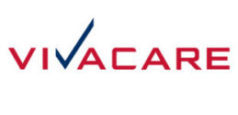Many of us have seen the standard sleep hygiene recommendations that have been around for decades. Although those recommendations continue to apply to the modern times, there are additional “Tips” that may be important to consider in order to improve your ability to sleep better.
- Turn off your gadgets – as blue light emitted from smartphone, TV and computer screens can suppress melatonin (a hormone helping you sleep) and increase your alertness
- Avoid drinking before bedtime – However enjoyable nightcaps may be, unfortunately, they could lead to more shallow sleep. A shallower sleep could lead to a negative cycle where you’re dependent on sedatives to sleep, and stimulants such as caffeine or sugary food to stay awake during the day.
- Get up early – If you’re having trouble sleeping, getting up earlier and exposing yourself to morning light could be the solution for you. It may seem brutal, but it can get results.
- Forget your worries – It’s important to let go of the worries that build up during the day as
they can affect both the initiation and maintenance of sleep. - Work Out – Whether you’re swimming, running, or practicing yoga, regular exercise can make
for a great night’s sleep. It’s best to work out around six hours before you go to bed as
your body stays overheated for several hours after vigorous exercise, causing wakefulness. - Have a hot drink – A hot (non-alcoholic) beverage before bed is a great way to relax and prepare
for sleep. Avoid coffee, chocolate and fizzy drinks at least six hours before you go to
bed. - Listen to music – Soothing sounds can be a good way to doze off, but anything louder might
have the opposite effect. - Only use medication as a last resort – While you may get results in the short term, it’s
important to be aware of unwanted effects and see your doctor if you’re having trouble
sleeping. - Keep it simple and you should be on your way to a good night’s sleep
